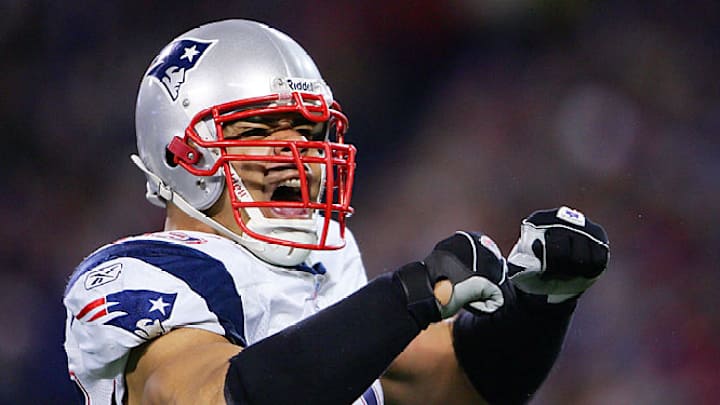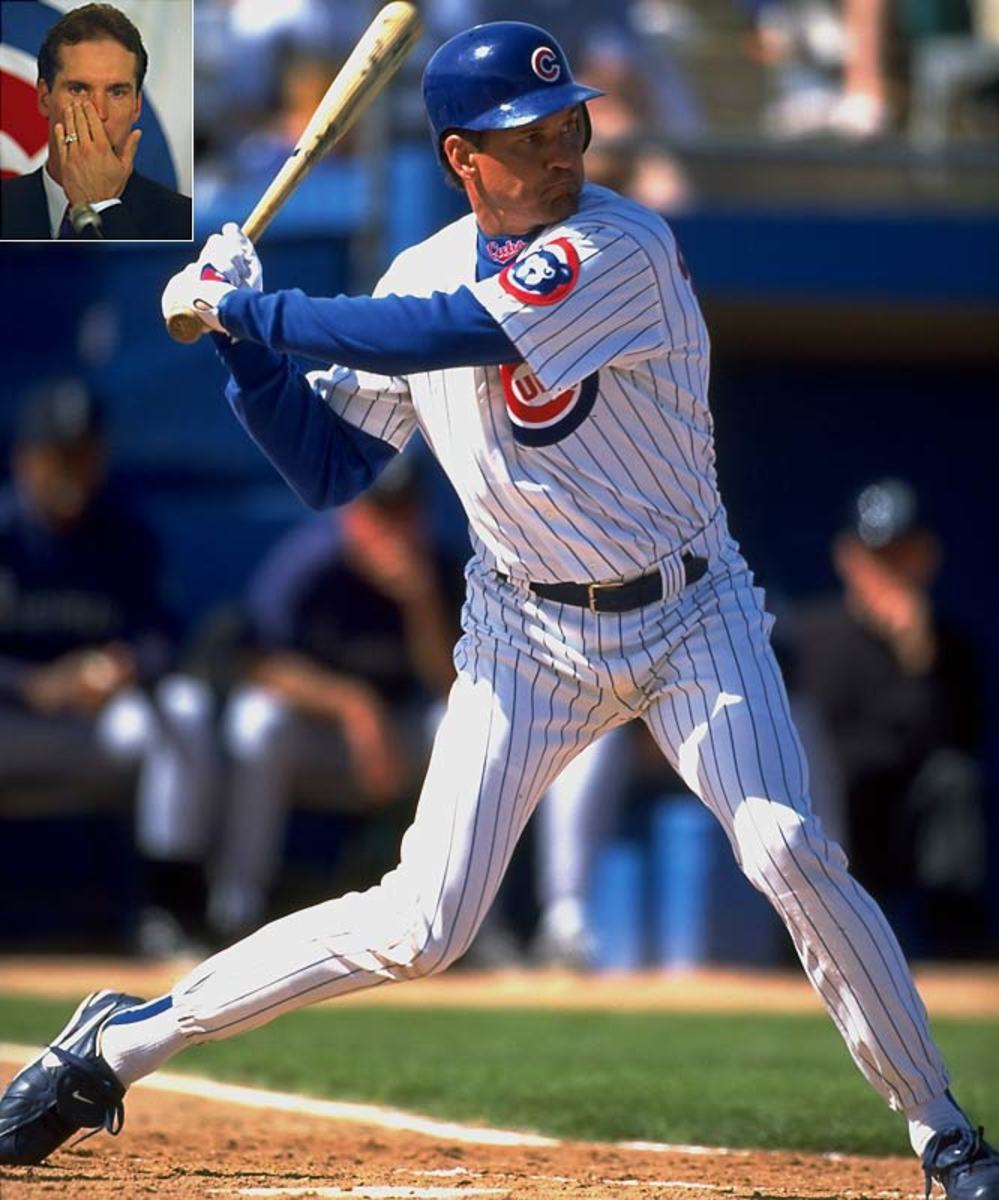Couldn't Stay Retired

Couldn't Stay Retired
Junior Seau

Junior Seau, 40, announced this week that he will be returning to the Patriots. Seau came out of retirement last year to play the final four games with the Patriots after playing 27 games with them in 2006 and 2007. Here's a look at some other sports personalities who couldn't stay retired.
Justine Henin

Former world No. 1 Justine Henin retired from tennis in 2008 with seven Grand Slams and an Olympic gold under her belt. After 15 months, she announced her return to the tour and plans to make her comeback at the 2010 Australian Open.
Kim Clijsters

In the 2 1/2 years that Clijsters was away from the game, she got married, had a daughter and cared for her father, who eventually died of cancer, so as she said, "I didn't have a chance to miss" tennis. She returned in the spring of 2009 and was one of the best storylines at the U.S. Open, where she defeated both Williams sisters en route to winning her second Open.
Brett Favre

Brett Favre retired from the Packers, only to unretire a few months later to join the New York Jets. After one season in New York, he retired again, but changed his mind yet again and is now with the Minnesota Vikings.
Lance Armstrong

After winning a record seven Tour de France titles, Armstrong called it a career in July, 2005. But the Texas native returned to pro cycling in 2009 and finished third in France.
Bill Parcells

Parcells' first two comebacks worked out well: he led the Patriots to a Super Bowl in 1996, just three years after taking over as head coach, and Jerry Jones lured Parcells out of a three-year retirement in 2003 to coach the Cowboys to three winning seasons in four years. Success in his third comeback attempt, turning around Miami, also came easily as The Big Tuna assumed the Executive Vice President of Football Operations position and led the Dolphins from a 1-15 record to an 11-5 mark and the 2008 AFC East crown.
Phil Jackson

After completing the second of the Bulls' two three-peats in 1998, Jackson walked away unsure if he would find another ''basketball challenge'' to accept. But after a year off, he returned to coach the Lakers, leading Shaq and Kobe to a three-peat from 2000 to '02 before stepping down two years later. Of course, he came back to L.A. again the following year, and guided the Lakers to the title last season.
Roger Clemens

The Rocket flirted with retirement before each of his three seasons with the Houston Astros and waited until May 2007 to announce his final comeback with the Yankees. Clemens won his seventh Cy Young after his first retirement in 2004, but his 2008 season netted just a 4.18 ERA and 6-6 record.
Michael Jordan

Jordan's first comeback, after a stint in minor league baseball, resulted in three straight championships for the Bulls. His second comeback brought a new uniform and a somewhat diminished image as the Washington Wizards missed the playoffs during both of Jordan's seasons.
Ricky Williams

With rumors circulating of a third failed drug test, Williams retired and sat out the 2004 season before returning to the Dolphins in 2005. He finished the season averaging 4.4 yards per carry with six touchdowns, but was later found to have tested positive for drugs again. While serving his one-year suspension, Williams played in Canada. He returned to the NFL in 2007, but suffered a season-ending injury just six carries into his first game back. He played the 2008 season as one of the Dolphins main backs and is with them again this season.
Muhammad Ali

The New York State Boxing Commission forced Ali into early retirement at 25 when it revoked his boxing license for refusing to serve in the Army. Ali returned three years later to stage his epic trilogy with Joe Frazier, and returned from a second retirement at 37, only to get embarrassed by Larry Holmes.
George Foreman

After 10 years away from the ring, Foreman came back from his second retirement in 1988. In 1994, at 45, he reclaimed the heavyweight title he had lost to Muhammad Ali 20 years earlier.
Bjorn Borg

After losing to John McEnroe in the 1981 U.S. Open final, Borg played just one tournament in 1982 and retired a year later. With his wooden racket in hand, Borg returned to the tour in 1991 but didn't win a match.
Bob Cousy

Cousy joined the coaching ranks at Boston College and the NBA's Cincinnati Royals after his retirement from the NBA, but at 41 he returned to the court for the Royals in a stunt to sell tickets. He scored just five points in the seven games he played.
Gordie Howe

A chronic wrist problem forced Howe to retire in 1971 after a 25-year NHL career, but he got back on the ice two years later for the newly formed World Hockey Association's Houston Aeros. At 51 he signed with the NHL's newest team, the Hartford Whalers, and scored 15 goals in 80 games while helping the Whalers make the playoffs.
Pele

Arguably the greatest soccer player of all time, Pele wanted to make his sport popular in America when he came out of retirement to play for the New York Cosmos for two seasons. His reported $7 million contract made him the highest-paid player in the North American Soccer League.
Larry Holmes

The former heavyweight champ retired in 1986 after a second loss to light-heavyweight champion Michael Spinks. Lured by a $3 million payday, Holmes made a comeback to fight Mike Tyson in '88 but lost in a fourth-round knockout and retired again. Coming back in '91, Holmes would eventually lose title bids against Evander Holyfield ('92) and Oliver McCall ('95) before beating Eric "Butterbean" Esch in 2002. He retired for good at 52, ending his 29-year career with a 69-6 record.
Mario Lemieux

Forced to leave hockey for two months after being diagnosed with Hodgkin's lymphoma in 1993, Lemieux returned to win the league's overall scoring record. Retiring again in '97, Lemieux maintained a position in the Penguins front office before returning to the ice in 2000 to finish with the league's best points-per-game average. Despite becoming the primary owner of the Penguins, Lemieux continued to play until his final retirement in '06.
Reggie White

In 1998, White retired after playing in two Super Bowls with the Green Bay Packers and being named NFL Defensive Player of the Year. Two years later he was back on the field as a Carolina Panther, finishing the season with six sacks and 16 tackles before retiring again.
Ryne Sandberg

Despite coming off an All-Star season, Sandberg struggled early in the 1994 season and retired. Two years later he came back to the Cubs for the 1996 and '97 seasons, hitting a total of 37 home runs, 156 RBIs, and 253 hits to finish with a .285 career batting average and 277 home runs, the most at the time by a second baseman in baseball history.
Sugar Ray Leonard

No athlete is known for having more comebacks than Sugar Ray Leonard. His first retirement was in 1982 after he suffered a detached retina in his left eye. He returned a year later but re-retired after a fight with Kevin Howard. Leonard's next return, in '86, only lasted one fight as he beat Marvin Hagler in a split decision. In typical Leonard fashion, that retirement was only temporary and he came back in '88 before announcing two more retirements following loses to Terry Norris in '91 and Hector `Macho' Camacho in '97.
Jim Palmer

Considered one of the best pitchers in major league history, Palmer called it a career in 1984 after winning 268 games in 19 seasons with the Baltimore Orioles. Just a year after being inducted to the Hall of Fame in 1990, the 45-year-old Palmer attempted a comeback with his former team. He gave up five hits and two runs in two innings of a spring training game and re-retired before Opening Day.
John McEnroe

In 1992, McEnroe retired, ending his 14-year career with seven Grand Slam titles, a 875-198 singles record and a 529-102 doubles record. In 2006, McEnroe returned to the ATP to play two doubles tournaments with partner Jonas Bjorkman of Sweden, winning the first in San Jose, Calif., and losing the second in the quarterfinals in Sweden. <br><br>Who would you add to the list? Send comments to siwriters@simail.com
Claude Lemieux

One of the NHL' most infamous instigators, Lemieux enjoyed a brief comeback with the San Jose Sharks last season at age 43 -- nearly six years after his retirement. A four-time Stanley Cup champion and 1995 playoff MVP who played for five NHL teams over the course of 20 seasons, Lemieux spent eight weeks in the American Hockey League before taking the ice with Sharks in January 2009. He played 18 games, scoring one point, before retiring again after the season.
